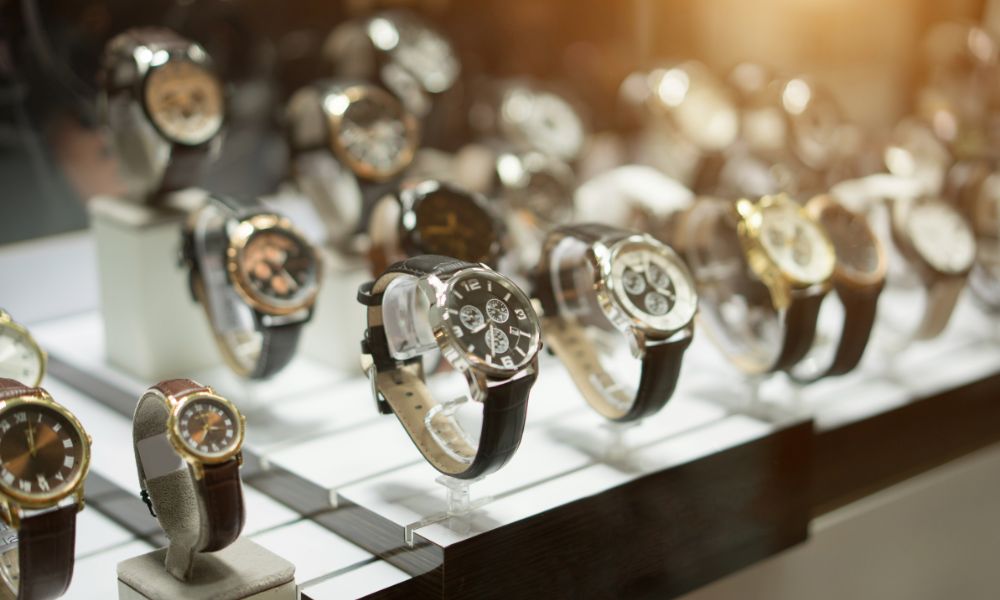Watches are more than just tools for telling time; they have evolved into timeless accessories that reflect style, personality, and craftsmanship. Whether you’re a seasoned collector, a first-time buyer, or someone simply looking for a reliable timepiece, the world of watches is vast and exciting. In this guide, we will delve into different types of watches, essential features to consider, and some of the top brands that have set the standard for quality and innovation in horology.
Types of Watches: Choosing the Right One for You
Watches come in a variety of types, each designed for different purposes and preferences. Understanding the differences between these types will help you make an informed decision.
1. Mechanical Watches
Mechanical watches are powered by intricate gears and springs. Unlike digital or quartz watches, mechanical watches rely on manual winding or automatic movement to keep ticking. There are two main types of mechanical watches:
- Manual Movement: These watches require you to wind the crown regularly to keep the watch running.
- Automatic Movement: These are self-winding watches that harness the natural motion of your wrist to power the watch.
Mechanical watches are highly regarded by enthusiasts for their craftsmanship and the intricate movements that power them. They also tend to hold their value well over time.
2. Quartz Watches
Quartz watches are powered by a battery and use a small quartz crystal to regulate time. These watches are known for their accuracy, affordability, and low maintenance. Quartz watches are less complex than mechanical watches, making them a popular choice for those looking for a reliable and practical option.
3. Digital Watches
Digital watches display time using electronic digits instead of traditional clock hands. These watches often feature additional functionalities like alarms, timers, and backlighting. Digital watches are ideal for those seeking a straightforward, functional timepiece.
4. Smartwatches
Smartwatches combine traditional timekeeping with modern technology. They offer a range of features beyond telling time, such as fitness tracking, heart rate monitoring, GPS navigation, and smartphone notifications. Smartwatches are ideal for tech-savvy individuals who want to stay connected and monitor their health.
5. Dive Watches
Designed specifically for underwater use, dive watches are water-resistant and feature a rotating bezel to track elapsed time during dives. These watches are built to withstand the pressures of deep water and typically have high visibility, robust cases, and a screw-down crown to ensure water-tightness.
6. Dress Watches
Dress watches are sleek, elegant timepieces designed for formal occasions. These watches typically have minimalist designs, with thin cases and leather straps. They are crafted to complement a suit or tuxedo, making them the perfect accessory for events like weddings, business meetings, and black-tie affairs.
7. Field Watches
Field watches are rugged timepieces designed for outdoor activities. With a durable construction, these watches often feature a simple dial, legible numerals, and a strong, water-resistant case. Originally developed for military personnel, field watches are now popular among adventurers and hikers.
Key Features to Look for When Choosing a Watch
When choosing a watch, several key features should be taken into consideration. Whether you’re buying your first watch or adding to an existing collection, these factors can help guide your decision.
1. Movement
The movement is the heart of the watch, determining how it keeps time. As mentioned earlier, mechanical, quartz, and digital movements each have their own advantages. Watch enthusiasts often favor mechanical movements for their craftsmanship, while quartz movements offer superior accuracy.
2. Water Resistance
If you plan to wear your watch during physical activities or in wet environments, consider a watch with a high water resistance rating. A watch’s water resistance is usually marked in meters or atmospheres (ATM), with 30m being suitable for everyday use, 100m for swimming, and 200m or more for professional diving.
3. Material
The material of the watch case and strap plays a significant role in both the durability and aesthetics of the timepiece. Common materials include:
- Stainless Steel: Popular for its strength, resistance to corrosion, and sleek look.
- Titanium: Lighter and more corrosion-resistant than steel, ideal for those seeking a lightweight watch.
- Ceramic: Scratch-resistant and lightweight, ceramic watches are becoming increasingly popular.
- Leather: Commonly used for straps, leather offers a traditional, luxurious look.
4. Case Size and Shape
Watch cases come in various sizes and shapes. The size of the case should suit your wrist, as larger cases can appear bulky on smaller wrists, while smaller cases may look disproportionate on larger wrists. The shape of the case can be round, square, or even more unconventional designs like tonneau (barrel-shaped).
5. Complications
Complications are additional features that a watch may have beyond simply telling time. These include:
- Chronograph: A stopwatch function for measuring elapsed time.
- Moonphase: Displays the current phase of the moon.
- Date Display: A calendar function that shows the date, and sometimes even the day of the week.
- Power Reserve Indicator: Shows how much time the watch will continue running before it needs to be wound.
6. Brand and Heritage
The brand of a watch can say a lot about its quality and history. Many renowned watchmakers have decades, even centuries, of experience crafting fine timepieces. Some of the most respected brands include Rolex, Omega, Patek Philippe, and Audemars Piguet. A watch’s brand also affects its resale value, with some luxury brands holding or appreciating in value over time.
Top Watch Brands: Luxury and Innovation
When it comes to luxury watches, certain brands have set the standard for quality, innovation, and prestige. Here are some of the top watch brands to consider:
1. Rolex
Arguably the most famous watch brand in the world, Rolex is synonymous with luxury, precision, and status. Known for their iconic designs and innovative features, Rolex watches are highly sought after by collectors. Models like the Submariner, Datejust, and Day-Date are timeless classics.
2. Omega
Omega is known for its precision and was even the official timekeeper for the Olympic Games. Famous for the Speedmaster, which was worn during NASA’s Apollo missions, Omega combines robust craftsmanship with elegant design. The Seamaster and Constellation collections are also highly regarded.
3. Patek Philippe
Patek Philippe is a name associated with the highest level of watchmaking. Known for their intricate complications and impeccable craftsmanship, Patek Philippe watches are often passed down through generations. The Nautilus and Calatrava are among the brand’s most sought-after models.
4. Audemars Piguet
Audemars Piguet is famous for the Royal Oak collection, a bold and unique design that has become a symbol of luxury. With its distinctive octagonal bezel and integrated bracelet, the Royal Oak is a favorite among watch enthusiasts.
5. Tag Heuer
Tag Heuer is known for its sports-oriented designs and cutting-edge technology. The brand’s association with motorsports and Formula 1 gives its watches a performance-driven edge. The Monaco and Carrera collections are among its most popular.
Conclusion: Finding Your Perfect Watch
Watches are more than just functional accessories; they are expressions of style, innovation, and craftsmanship. Whether you’re looking for a high-end luxury piece, a practical everyday watch, or a smartwatch that keeps you connected, there’s a timepiece for every need and preference. By understanding the different types, features, and top brands, you can make a more informed decision and choose a watch that not only meets your needs but also reflects your personal taste and lifestyle.




